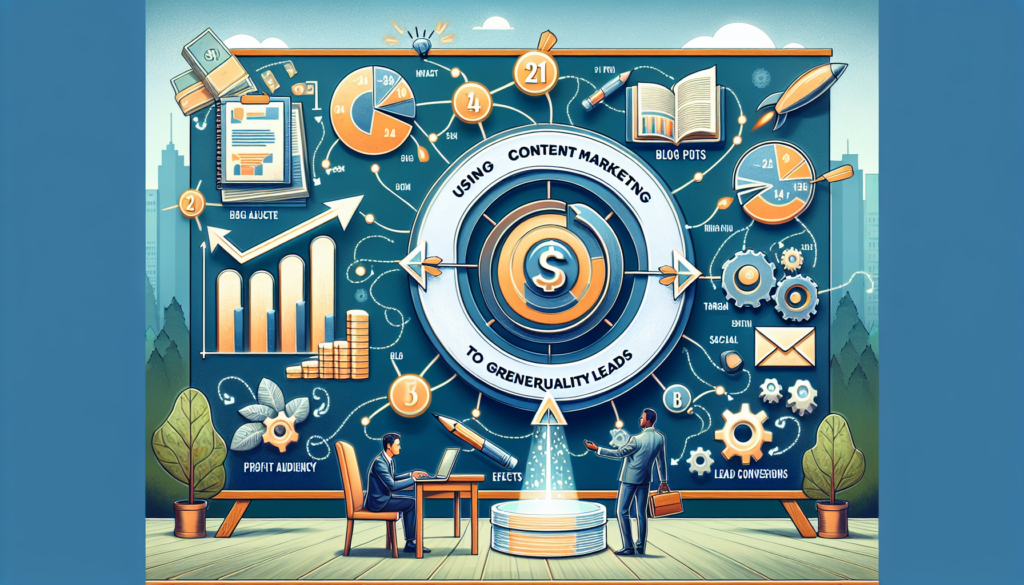Translate into English, respecting the markdown:
In an increasingly saturated digital environment, content marketing emerges as one of the most robust strategies for attracting and converting prospects into loyal customers. Understanding and applying the fundamental principles of lead generation through content not only helps to capture the attention of a specific audience but works to nurture and develop the relationship with potential high-quality leads.
This article delves into the most avant-garde and effective techniques of content marketing, designed to capture valuable leads, offering a comprehensive perspective from theoretical planning to the implementation of the latest innovations in the field.
Content Marketing Fundamentals for Lead Generation
Content marketing is a strategic approach focused on creating and distributing valuable, relevant, and consistent content to a defined audience with the goal of attracting and retaining that audience, and ultimately, driving customer action toward a profitable gain.
The Role of Buyer Personas
It all begins with the accurate identification of buyer personas, which are semi-fictional representations of the ideal customer based on data and analysis. A deep understanding of these profiles guides content personalization to address their specific needs, pain points, behaviors, and purchasing patterns.
The Relevance of SEO
SEO, short for Search Engine Optimization, is the process of improving a website’s visibility in the organic results of different search engines. A content strategy not supported by recent SEO practices is virtually invisible to the online audience. The use of relevant keywords, structuring content to highlight its importance, and link building are fundamental aspects.
Quality Over Quantity
The quality of the content is more crucial than the volume. Impactful content is that which provides valuable information, answers complex questions, and offers solutions. This not only favors engagement but also establishes the brand as an authority in its field, fostering trust and recognition.
Multiplatform and Multiformat Content
A multi-channel and multi-format approach maximizes the visibility and accessibility of content. Videos, podcasts, infographics, case studies, and whitepapers are just some of the formats that can be used to address different learning styles and content consumption preferences.
Strategic Implementation in Content Marketing
Creating content is just the beginning. Active distribution and promotion are essential to ensure that the content reaches its target audience.
Automation and Personalization
The use of automation tools to personalize the customer journey has become a norm. Platforms like HubSpot or Marketo allow automating responses and personalizing interaction based on user behavior, increasing the effectiveness of the content in generating leads.
Measurement and Analysis
Data collected through advanced analytics tools offer an unprecedented insight into user behavior and content effectiveness. Measuring content performance is key to adjusting tactics and strategies in real time.
Case Studies: Successful Practical Applications
Case studies of companies that have used content marketing to generate leads effectively can serve as concrete examples and sources of inspiration.
HubSpot, for instance, has used whitepapers and webinars to collect contact information from interested professionals, thus feeding their sales funnel with highly qualified leads.
Adobe has employed a similar approach through the creation of content about their products, but oriented to solving specific problems of their users, thereby increasing the perceived value and trust in their brand.
Looking to the Future: Innovations and Trends
Looking ahead, content marketing will continue to evolve with the introduction of technologies such as artificial intelligence and machine learning that could revolutionize the way content is produced and personalized.
AI in Content Generation
Artificial Intelligence (AI) is starting to be used to create content more efficiently, from basic writings to complex analytical reports, freeing up time for marketing professionals to focus on strategy and creativity.
Chatbots and virtual assistants, powered by AI, are providing instant and personalized responses to user queries. This immediate transmission of valuable information increases the chances of converting a visitor into a lead.
Big Data and Predictive Marketing
The use of Big Data in marketing is allowing not only to analyze the present but also to predict trends and behaviors. Companies will be able to anticipate the needs of their customers and offer content that aligns with future demands.
In conclusion, the strategic and measured use of content marketing proves to be a powerful tool for generating quality leads. Well-researched, specifically targeted, and intelligently distributed content can build a solid base of prospective customers and maintain a healthy and productive sales funnel in a competitive digital market. With technological innovations on the horizon, marketing professionals must remain agile and well-informed to take advantage of the new opportunities and tools that will arise in the constantly changing digital landscape.

